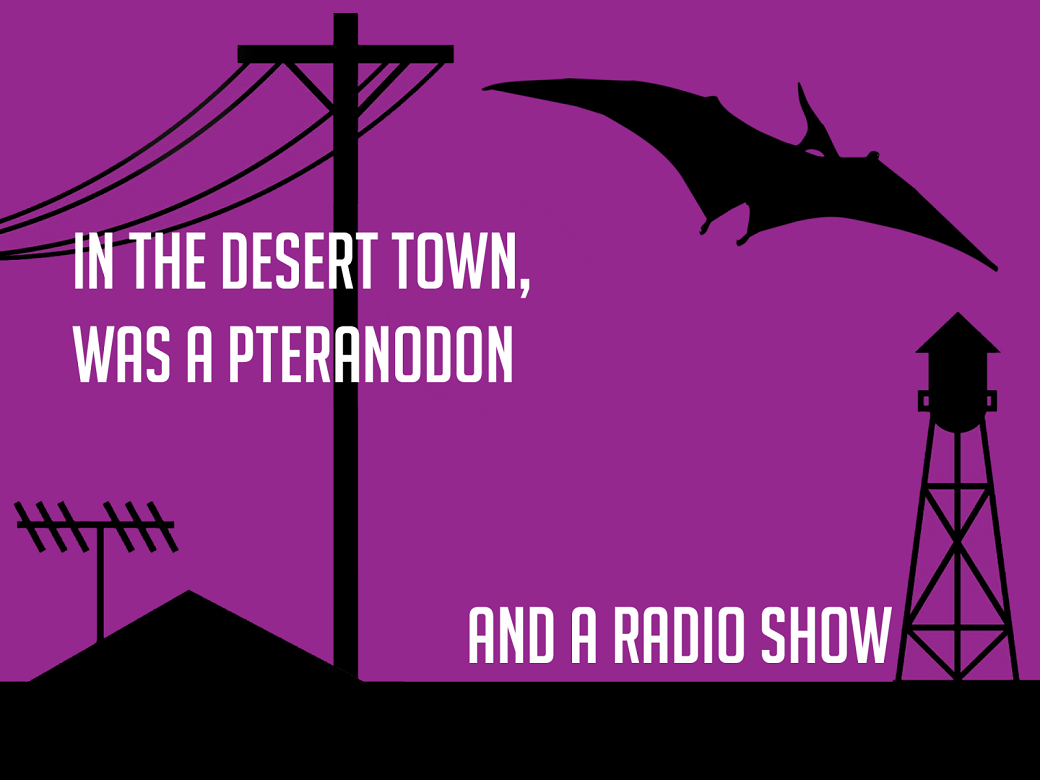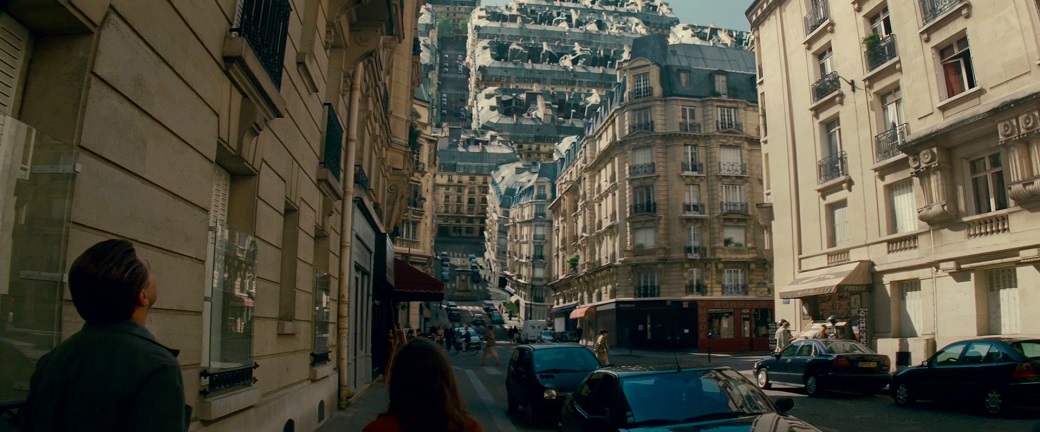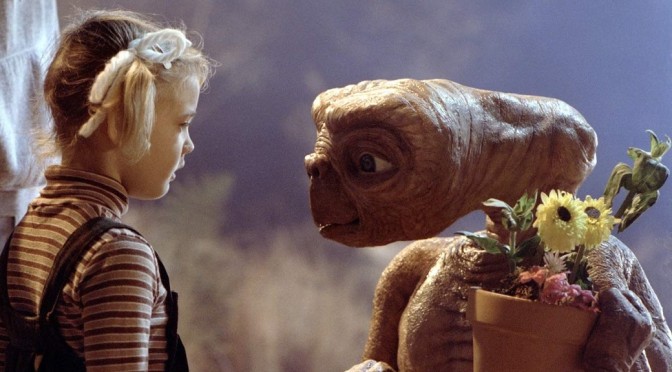Jerry Seinfeld joked that if aliens came to earth and saw people walking dogs, they would assume the dogs are the leaders. The dog walks out front, and a gangly creature trailing behind him picks up his feces and carries it for him.
Throughout my life I’ve had moments where I felt like one of these visiting aliens, where something I knew to be normal suddenly seemed bizarre. I remember walking home from somewhere, struck by how strange streets are: flat strips of artificial rock embedded in the earth so that our traveling machines don’t get stuck in the mud.
Everything else seemed strange too. Metal poles bending over the road, tipped by glowing orbs. Rectangular dwellings made of lumber and artificial rocks. The background noise is always the hum of distant traveling machines, and all of this stuff was built and operated by a single species of ape.
Even stranger was the fact that these strange things usually don’t seem strange. I know I’m not the only one who has felt this. A few people have shared similar experiences with me, and according to The School of Life, it was a central theme in Jean-Paul Sartre’s novel Nausea.
Sartre apparently believed that the world is far stranger and more absurd than it normally seems. Most of the time, however, we ascribe a kind of logic and order to the world that it doesn’t really have, so that we’re not constantly bewildered by it. Sometimes we momentarily lose track of that logic, and the true strangeness of life is revealed. In these moments, we see the world as it is when it’s been “stripped of any of the prejudices and stabilizing assumptions lent to us by our day-to-day routines.” In other words, we occasionally see the world as if for the first time, which could only be a very strange experience indeed.
Although I know this experience isn’t unique to me, I had no idea whether most people could relate. So when I discovered the surprisingly popular podcast Welcome to Night Vale, I felt that a small but significant part of my experience had been understood. Night Vale is a fictional desert town, and each episode of the podcast is about 20 minutes of broadcasts from its public radio station. The host reads public service announcements, advertisements, community news and weather, and messages from the City Council.
That would be extremely boring, except that almost everything that happens in the Night Vale is incredibly strange, even impossible.
The first announcement in the first episode is a reminder from City Council that dogs are not allowed in the dog park, and neither are citizens, and if you see hooded figures in the park you are not to approach them. In an unrelated matter, there is a cat hovering four feet off the ground next to the sink in the men’s washroom at the radio station. It cannot move from its spot in mid-air, but it seems happy, and staff have left food and water for it.

Wednesday has been canceled, due to a scheduling error. There is a glowing cloud raining small animals on a farm at the edge of town. A large pyramid has appeared in a prominent public space, apparently when nobody was looking.
I imagine that when most people hear about WTNV, they listen to five minutes of it and turn it off. It feels like a joke at first, or at best, bad art. I kept listening, thinking the weird happenings are some kind of allegory, or a code to be deciphered. But they’re not. The story stays absurd, kind of like an over-the-top Twin Peaks, where none of the weirdness ever gets explained.
Everything is weird until it’s familiar
I was listening to the podcast on headphones, walking down our local riverside path, and I passed an older couple sun-tanning. I’ve seen people tanning a thousand times, but only then did the activity strike me as completely hilarious. In our world, people sometimes take off all their clothes—or at least as much as society will allow—so that they can get radiation burns from a glowing ball in the sky. Even though everyone knows this practice increases your chances of developing a fatal disease, people still do it because they like the color of the burned flesh. Skin burned to a certain tone confers social benefits for a few weeks.
The fact that we live on a planet at all would be unbelievable if we weren’t already used to it. Nobody could have dreamed up this setting: life is set on one of many ball-shaped rocks moving in circles around a bigger, glowing ball. And we have great affection for these other balls. When officials demoted Pluto to a minor ball, people were outraged, even though none of them had ever actually seen it. When the spaceship sent to take pictures of Pluto finally arrived, we discovered it had a giant white heart on its side. It had been loving us back the whole time!
Listening to Night Vale reminds us that our world is no less strange, just more familiar. If in our world, as in Night Vale, taco shops sometimes became encased in amber, we would accept that as a fact of life after seeing it a few times. But that’s no weirder than the fact that in order to live, we must breathe a gas that combusts so easily and so violently that every city has to have specialized departments dedicated to shooting water onto anything at a moment’s notice. (Bill Bryson captures this strangeness beautifully in A Short History of Nearly Everything.)
You can see the weirdness in almost any normal phenomenon by imagining how you’d describe it to someone not from Earth or any place like it. Water falls uncontrollably from the sky? Pop culture is obsessed with people who pretend to be other people in moving pictures? We eat fresh food grown on the opposite side of the planet? What?

The three options
So our world is really weird and chaotic, which is a helpful thing to realize, because we suffer so much insisting that it should be sensible and orderly. We have to live in a very strange place, and when we forget that it’s strange due to familiarity blindness, it can seem like something’s always gone temporarily wrong. We become preoccupied with returning society to a kind of balance or sanity that it never had, often berating or abusing certain people or certain groups in the process. It’s quite a relief to remember that life was always nuts.
Albert Camus (who is an obvious influence in Night Vale) argued that the universe is always absurd and chaotic, yet we’re always trying to find meaning and order in it. When you listen to Night Vale, making sense is the first thing your mind tries to do with what it hears, and it can’t. When you relax that need for the events to make sense, something softens. You stop straining. You listen more for the moment and less for how each moment serves everything else. You gain a sense of humor about the whole thing, however dark it gets.
Because it requires listeners to voluntarily open up to extreme strangeness, Night Vale has made me a less uptight about our own society’s political and cultural nonsense. I am seeing society less like a troubled person who was once sane, and more like a funny-looking animal, adorably knocking things over by accident.
Camus thought our unreasonable demand for meaning and sense was fundamental to human beings, and that it creates a ton of pain for us. He saw only three ways to respond to life’s absurdity: we can deny it (usually by claiming that a God has designed it this way), we can commit suicide, or we can embrace the weirdness and live in it wholeheartedly.
The last option, he figured, was the only good one. When you stop expecting the world to be sensible, suddenly it all makes sense.
Embracing the weirdness takes the edge off of everything, even death. Whenever you’re worried about “big picture” ideas, such as war, climate change, crime, corporate greed, you can remember that this whole weird thing called life just happened, and it’s always fresh and interesting, even though nobody really asked for it. And in that light, the thought of it ending one day doesn’t seem distressing at all—when your time comes, all you can do is say, “Wow, that was odd.”


For me my belief system does not embrace “this whole weird thing called life just happened, “. My world view is that my higher power (God) did start this whole thing and so the randomness associated with ‘just happened’ does not fit for me. Also like Budha God is in everything from the familiar to the weird and in everything living or not. Quantum theory and mechanics tells us there is a parallel universe and even multiples so it is clearly reasonable to think that we may not have the computing power between our ears to really understand nor articulate the oneness of it all. I like this piece even though I disagree with some of the tenants quoted.
“I like this piece even though I disagree with some of the tenants quoted.”
I second this. I rarely agree with everything in anything I read, but find myself in sync with larger parts of it. I like to think there is purpose to our being here now, whether by the choice of our own spirit or as part of a grander cosmic design. But I am an optimist and prefer to think a vital part of our human experience here is not remembering the oneness of it all so we can experience and learn from our seemingly solitary consciousness. Maybe part of our goofy and nonsensical behavior is a result of us fumbling for that connection which has been temporarily severed or limited.